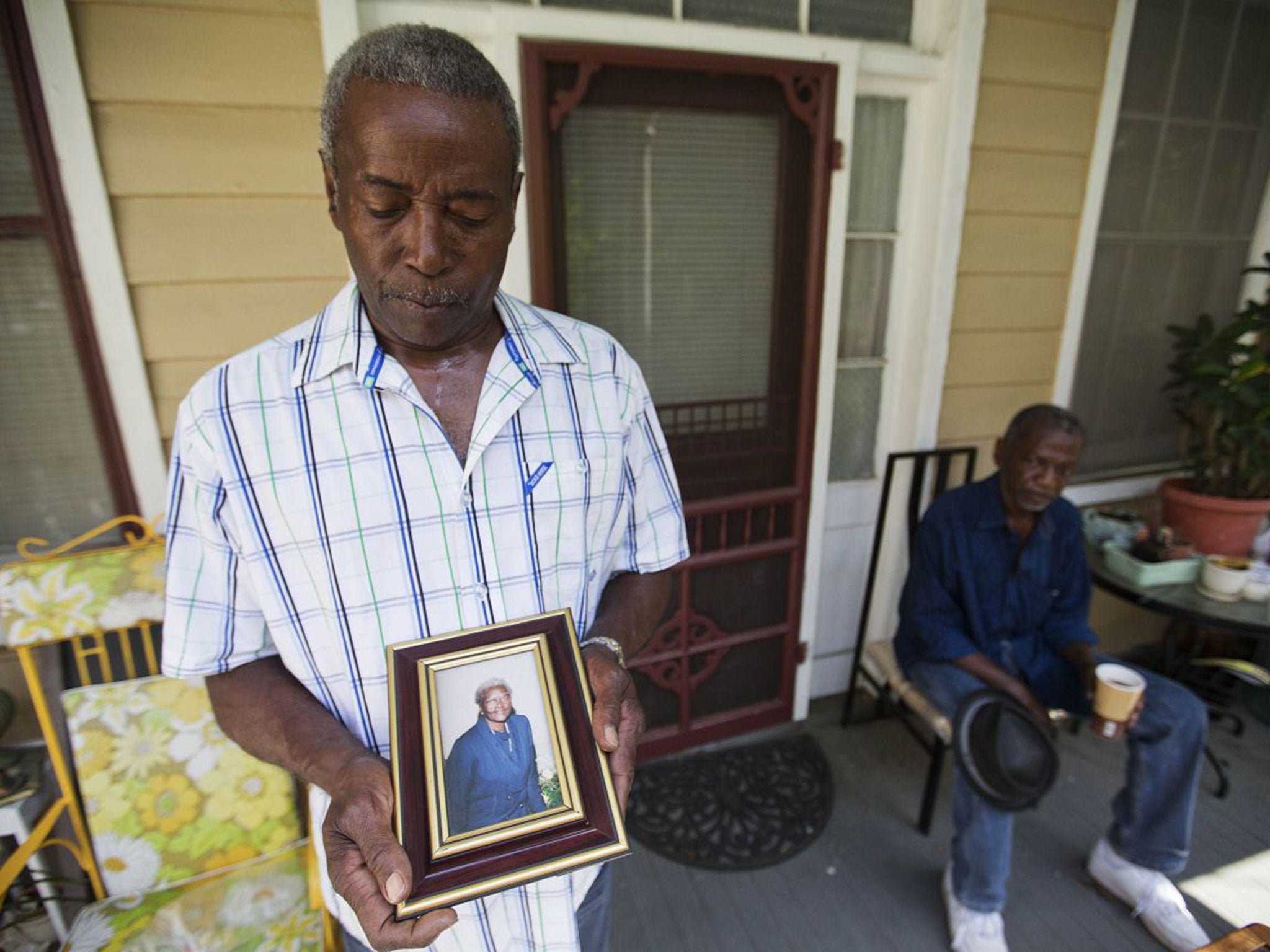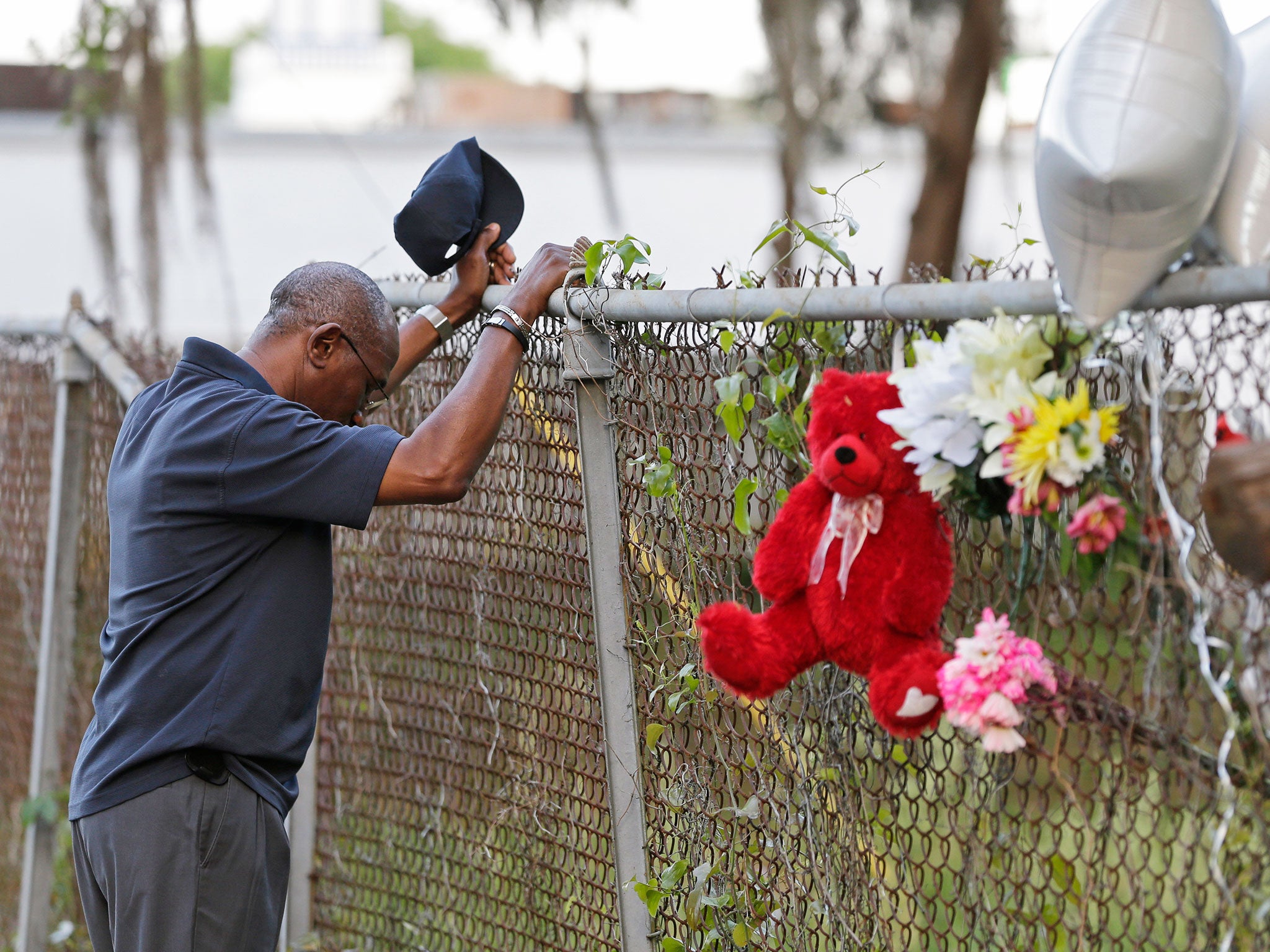Charleston shooting: Is South Carolina the most racially riven state in the land?
As Charleston tries to come to terms with Wednesday’s church massacre, in which nine black people were murdered by a white gunman, David Usborne visits the grieving South Carolina city and finds race relations are at a new low

Your support helps us to tell the story
From reproductive rights to climate change to Big Tech, The Independent is on the ground when the story is developing. Whether it's investigating the financials of Elon Musk's pro-Trump PAC or producing our latest documentary, 'The A Word', which shines a light on the American women fighting for reproductive rights, we know how important it is to parse out the facts from the messaging.
At such a critical moment in US history, we need reporters on the ground. Your donation allows us to keep sending journalists to speak to both sides of the story.
The Independent is trusted by Americans across the entire political spectrum. And unlike many other quality news outlets, we choose not to lock Americans out of our reporting and analysis with paywalls. We believe quality journalism should be available to everyone, paid for by those who can afford it.
Your support makes all the difference.With generals painted in oil on the walls and military mementoes in cabinets, the dusty Confederate Museum in Charleston is five blocks from the church where nine worshippers, including four pastors, died by gunshot. Two hours away in Columbia, a Confederate flag flies over the South Carolina State Capitol.
There is a hunger in Charleston to understand. Dolores Dylan, 55, had just found out that her cousin, Myra Thompson, was among those killed at the Wednesday Bible class, when she went with her mother and her granddaughter to the front of the Emanuel AME Church on Calhoun Street to lay her bouquet with all the others at the base of its front steps. “Just why? Just why?” she said afterwards, almost to herself.
Many in the community do offer answers and they are always to do with race. And, of course, guns too. But race above all. This is a city and a state where nostalgia for a time when white supremacy was the reigning ideology will not die. On the 150th anniversary of the start of the South’s attempt to secede and the Civil War, the white community here celebrated with a Confederate costume ball.

Dylann Roof, 21, the suspect who fled the bloody scene in the church basement only to be picked up at a traffic stop in North Carolina some 12 hours later and then flown back to a cell in Charleston, was charged with nine counts of murder and was to face a judge for a bail hearing.
According to CNN, he confessed to his jailers and offered his explanation: he wanted to start a race war.
Governor Nikki Haley, a Republican, doesn’t want thoughtfulness, however. Nor, as she gave interviews across the street from the church for breakfast television, would she brook any questions about the Confederate flag flying in Columbia. “Any time there is traumatic situation, people want something to blame. They always want something to go after,” she said. “There is one person to blame here. We are going to focus on that one person.”
She then called for the death penalty for Mr Roof, if he is found guilty. She would meet violence with violence.
Racial strife has flared in many US cities in the past 12 months, often to do with police and judicial bias against black people. It happened right here too, when a black man called Walter Scott was shot in the back as he fled an officer last April. And some in Charleston will tell you that nowhere is the divide between black and white deeper than it is here.
Is South Carolina the most racially riven state in the land?
Two young white teachers, Taylor Seale, 23, and Elsie McClure, 23, came to the AME Church with two signs. They read “Black Lives Matter”, a slogan that has emerged from the past year’s protest across the country, and “Pray for Charleston”.
As they stood by, a black woman railed at white reporters just for being white. “The white man is the problem,” she said. “You are the problem.” She also berated the church for welcoming Mr Roof. “Why you coons so stupid?” she said. “Your church is for blacks.”
“I think the people of colour here are right to be angry,” observed Ms McClure, who, like her friend, teaches 12-year-olds in a nearby state school. What happened on Wednesday was “surprising and not surprising,” she said, evoking the issue of the flag at the Capitol. “I think we have created an atmosphere where this sort of thing can happen.”
She fears for her pupils, and especially the black ones, growing up amid such racial tension. “We talk about it, we write poems about it. But we aren’t doing anything about it,” she offered. “It makes me feel very helpless as a teacher that I can’t give them hope that they can succeed in this kind of environment.”
Ms Seale then chimes in with an observation she herself finds telling. “When I first heard there had been a shooting in the church, I just felt it had to be a white shooter, it just instinctively came to mind straight away.” Not a black shooter. It was a race attack and she knew it immediately.
And Mr Roof, whose Facebook page showed him wearing badges associated with white supremacy, surely lived in circles where expressions of racism were OK, funny even, she speculated. “How many people stood up to him and said, you shouldn’t say those things, you shouldn’t be wearing those badges?”
Pastor Thomas Dixon, a black rights activist who also went to the AME church to pay his respects, asserted that every level of authority in Charleston – the police, city hall and even the school board – have always answered the complaints of the black community the same way. “It isn’t really that bad, you’re exaggerating,” is what they say. “They have been getting away with it for years,” he said. “Well, now it’s in their face.”
“I wouldn’t say [the black community] are wrong,” said Cress Darwin, the white pastor at the Second Presbyterian Church, whose mostly white flock held a service of vigil on Thursday evening before the congregation filed out and around the corner to the steps of the AME, already bedecked with flowers, candles and shiny gold balloons, just one block away. He said he cried when he heard what had happened.
“But they are part of it too,” he added quickly, referencing the angry black woman who had chastised the “coons” of the AME for letting a white man in. “It’s going to take both sides here to make things change,” he said.
Pastor Darwin, 67, offers that the election of America’s first black president may actually have added to racial distrust and strife.
“Some people here still can’t believe we have a black president,” he said. “It is a hatred that is based on fear that the other side is going to take what we have. Our country will soon be minority Caucasian and I think that that is part of this.”
An older black woman, Rosa Bryan, 73, offers a similar observation about the President. She is the mother of Ms Dylan and thus also related to Ms Thompson, who died. “I think it even got worse since Obama, I mean most white people have no respect for him. I do think he has made things worse.”
Maybe nothing speaks more to the daily plight that is black America’s than the sense of near resignation felt by Ms Bryan even in the face of this tragedy. It is almost as if their lives do have less value, do matter less, because so many of their young are shot or incarcerated. Asked how she had reacted when told her cousin was among those killed, she nearly shrugged. “You just cry and wonder why, you know…”
And her daughter also refrained from voicing any anger, fury or even great surprise. “You have to forgive, you are taught to forgive,” Ms Dylan said, as she made to leave the church and its makeshift shrine for home.
In Charleston today, forgiving might not be the right answer. But executing Mr Roof, as the state Governor wishes, might not either.
Join our commenting forum
Join thought-provoking conversations, follow other Independent readers and see their replies
Comments